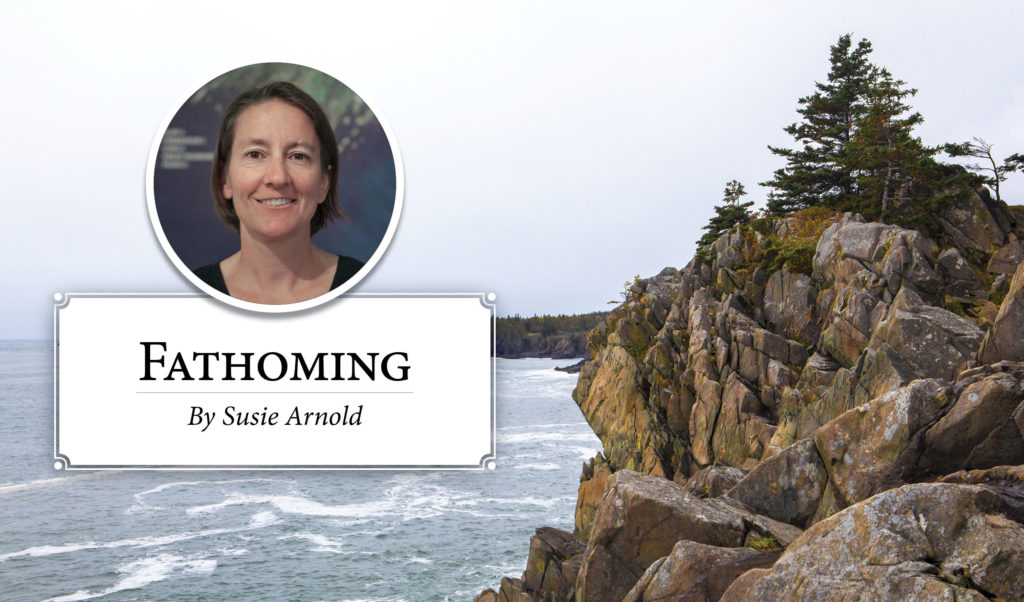In following the rollercoaster of how new regulations designed to protect the North Atlantic right whale will impact Maine’s lobster fishery and the communities the industry supports, two recent announcements stuck out to me.
One is the National Marine Fisheries Service (NMFS) five-year review of the species. The whales are still endangered, which is no surprise and not good news for anyone. The other is Congress’s 2023 appropriation which includes a pause on new federal whale regulations until the end of 2028 and allocates funds for more data and research.
At face value, these may seem juxtaposed. But within the fine print are advances that should allow us to more effectively monitor and protect an endangered species in the face of a rapidly changing environment. The NMFS report acknowledges that climate change is a factor in the decline of the NARW and poses a significant threat to its recovery, and Congress gave us the time and resources to adapt.
Since 2015, more right whales are foraging in the Gulf of St. Lawrence.
It is well known that the Gulf of Maine is warming faster than most water bodies on the planet due to arctic warming changing our region’s ocean circulation. The weakening of a major current system called the Atlantic Meridional Overturning Circulation is shifting the warm Gulf Stream northerly while the cold Labrador Current retreats, resulting in warmer water entering the Gulf of Maine through the northeast channel.
This phenomenon explains the 2010 “regime shift” when the rapid warming of the Gulf of Maine progressed in earnest; 2021 was the hottest year on record in the Gulf of Maine, and the top five warmest summers all occurred in the last decade.
We know how warming impacts marine species like lobster, but it is also causing disruptions in predator-prey dynamics, particularly due to impacts on species at the base of the marine food web, such as Calanus finmarchicus, the copepod that is the preferred prey source for right whales.
The copepods are no longer occurring in dense patches where right whales once fed. These climate-driven changes lead to less favorable foraging, reducing the calving rate, and exposing them to greater mortality risks from ship strikes and entanglements as they seek food in areas where precautions are not in place.
Since 2015, more right whales are foraging in the Gulf of St. Lawrence. Long term acoustic monitoring indicates the daily occurrence of right whales in the Gulf of St. Lawrence quadrupled after 2015 in comparison to 2011-2014. Coinciding with this change is an unusually high mortality rate since 2017, in part due to ship strikes and interactions with fishing gear, like snow crab gear with heavier traps and thicker line than used in Maine fisheries.
In the NMFS five-year review, mortalities and serious injuries from ship strikes and entanglements are considered “human caused,” and rightly so. But there is another human cause leading to the decline of not just right whales, but most endangered species on the planet—climate change.
We’ve all played a role in pushing species to the brink. Undoubtedly serious injuries and deaths are attributed to ship strikes and entanglements in fishing gear, but it’s critical to acknowledge and consider the underlying stress from climate change that threatens every single whale, particularly reproductive females.
These announcements, for me at least, come with some hope—hope that we can do better. Funds have finally been allocated to fill serious information gaps and enable regulatory and business decision-making based on facts and current data rather than worst case scenarios and data that no longer applies due to rapid ocean climate change.
Rather than continuing to document the decline of things we care about, let’s work together to solve the problem.
The challenge shouldn’t fall on hard-working fishermen engaged in one of the most sustainable fisheries in the world to support their families, communities, and the backbone of an entire state’s economy. The North Atlantic right whale is just one acute example. The fact is we are living in a global biodiversity crisis, with a common thread—climate change. All of us can play a role in reversing this trend. Now, more than ever before, there are multiple pathways for action.
Susie Arnold is a senior ocean scientist at the Island Institute, publisher of The Working Waterfront, working on the impacts of climate change and ocean acidification on marine resources and fisheries-dependent communities.





